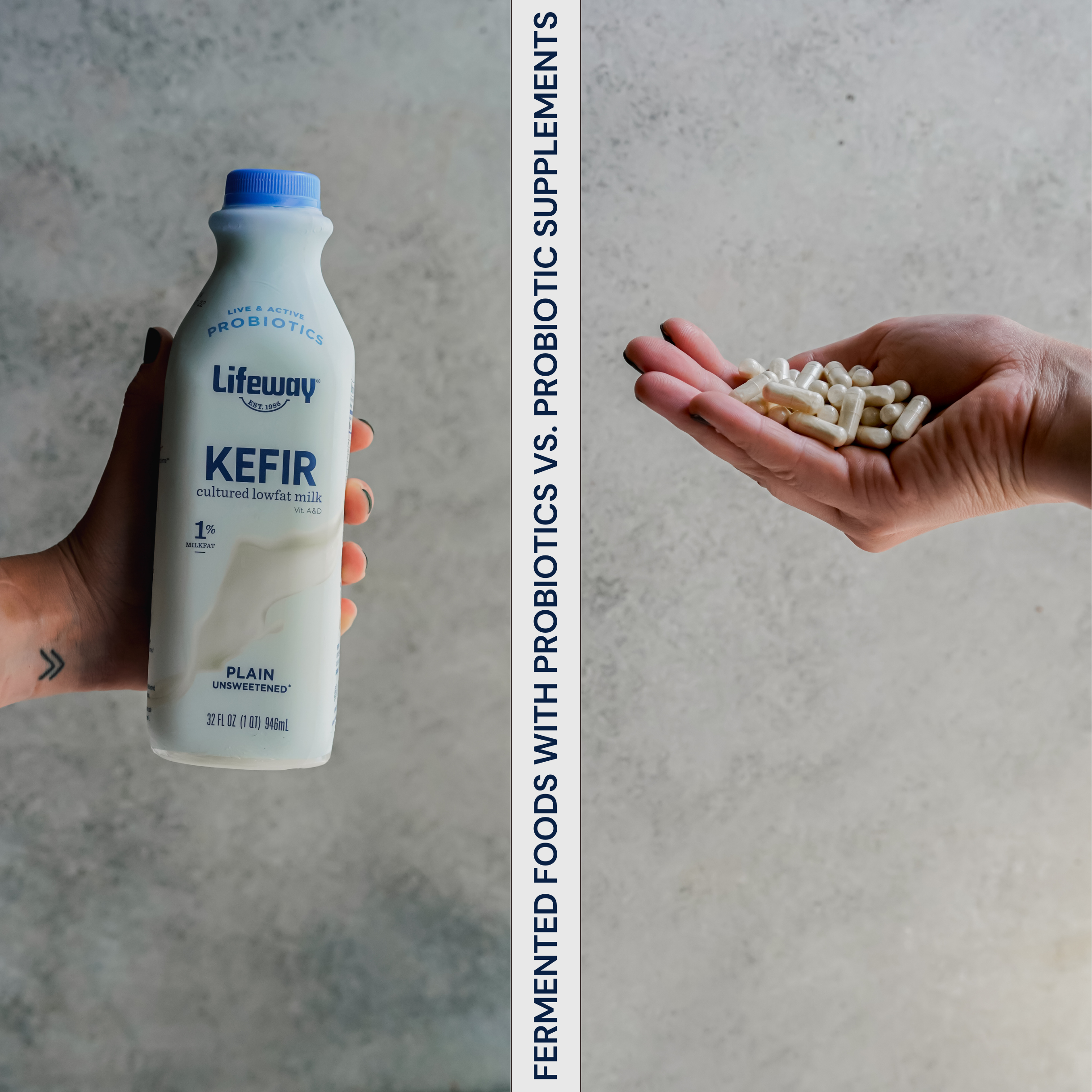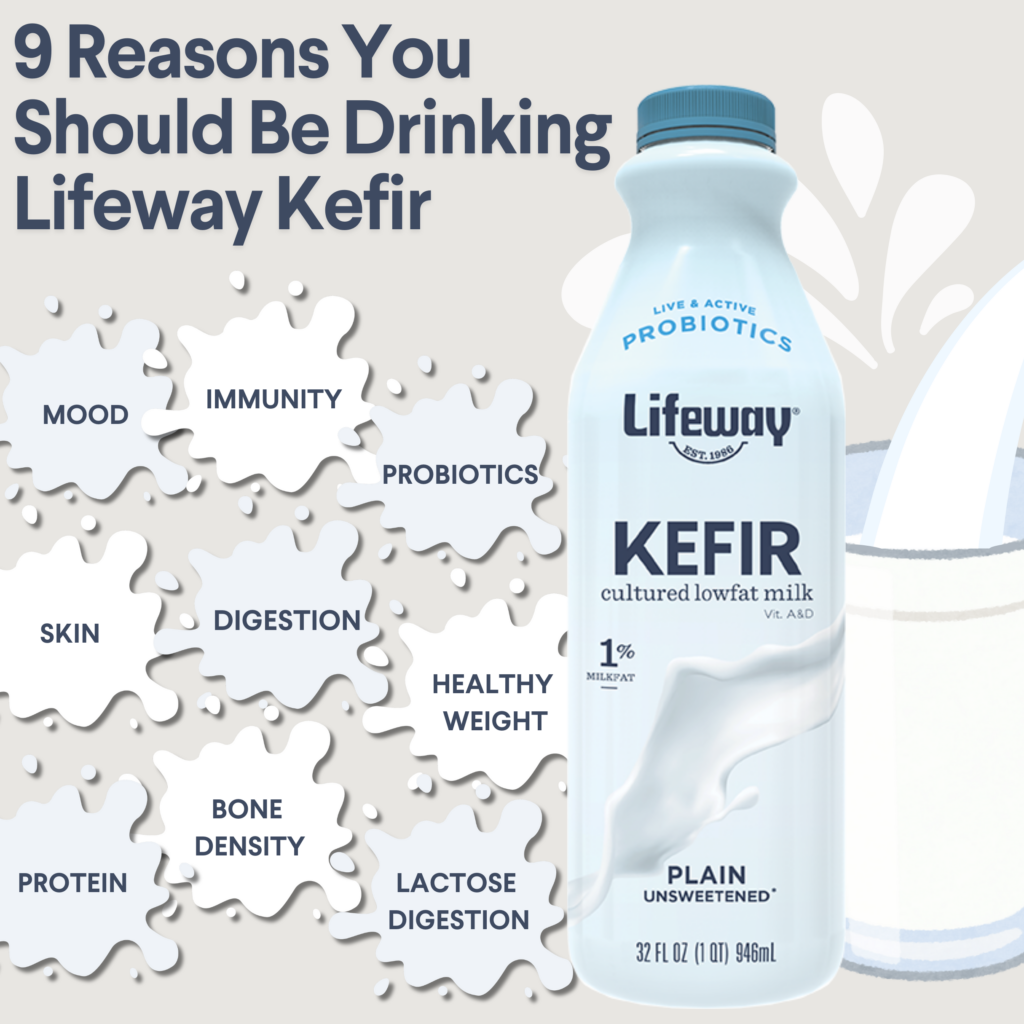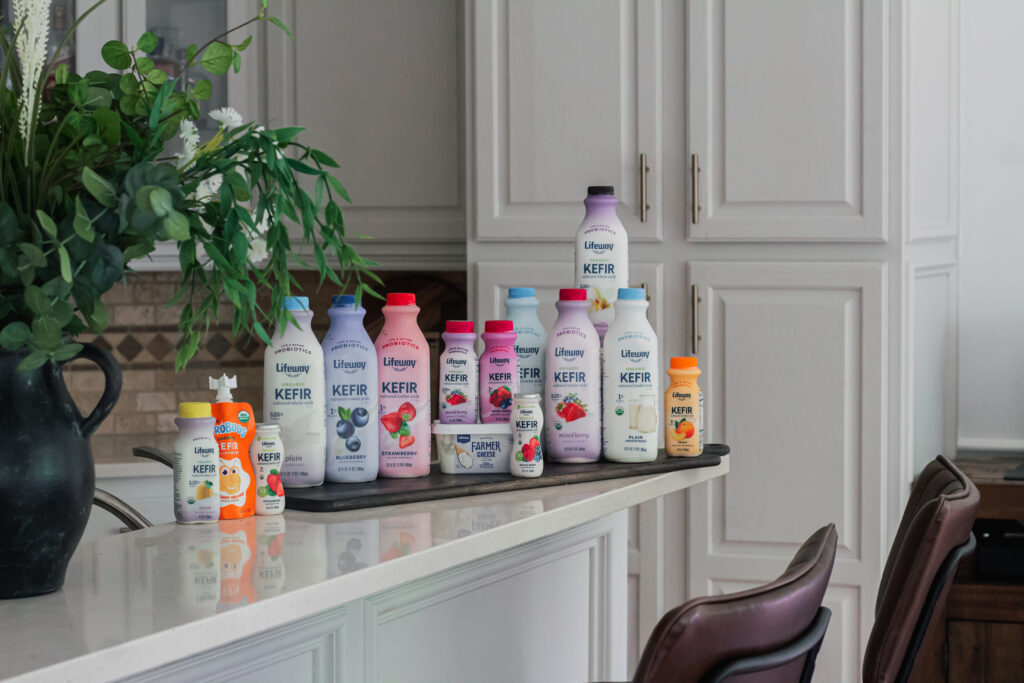Gut health is nearly synonymous with probiotics since we all know we need healthy gut bacteria to live well and feel our best. Probiotics are live microorganisms similar to the ones already living in your gut and may offer health benefits when consumed in adequate amounts. Together with a healthy diet that is also rich in prebiotics, they may help our microbiomes to support digestive and immune health, and positively affect our mood. However, when it comes to probiotics, it can get tricky and overwhelming with the number of options available between supplements and food. The following helps break down the difference.

Food vs. Supplements: What You Need to Know
When it comes to probiotic supplements from pills and powders, the issue isn’t as simple as it seems. It takes a little bit of education on the consumer part as cultures manufacturers can use vary widely and some strains may not help the exact gut issues you’re looking to treat. One resource that can help narrow down supplements for the benefit is “A Clinical Guide for Probiotic Products Available in the USA”. While probiotic supplements are popular, and a relatively safe way to consume probiotics, there are a couple downfalls. As with all supplements, probiotic pills and powders aren’t regulated by the FDA, whereas food products that naturally contain probiotics have rigorous testing and labeling standards by the USDA and FDA. In addition, live probiotics need to be protected to survive the journey through stomach and into the gastrointestinal tract. While supplements are encapsulated, some studies have shown survival rates vary and it can be up to the consumer to dig into the research of which ones survive.
On the other hand, fermented dairy products, such as Lifeway Kefir, is an excellent carrier for delivering live and active probiotics to the gastrointestinal tract because of their physiochemical makeup – protein, fat and carbohydrates. In addition, dairy’s specific pH buffers the acid in the stomach, protecting the probiotics and increasing the chance of them making their way through the digestive tract.

The Added Value of Kefir vs Supplements
Not only does each 8-ounce serving of Lifeway Kefir contain 12 live and active cultures and 25 to 30 billion colony forming units (CFU) to help maintain a healthy and balanced gut, but it’s also a nutrient powerhouse of essential nutrients not found in a probiotic supplement and difficult to replace when not included in a healthy diet. An 8-ounce serving of kefir is an excellent source of vitamin D, riboflavin (vitamin B2), vitamin B12, and calcium, and a good source of protein, vitamin A, pantothenic acid (vitamin B5), biotin, phosphorus, selenium and zinc. These nutrients are essential for everyday health, including building and maintaining muscle, energy and a healthy weight.
Another benefit of kefir, thanks to its long fermentation process with the cultures, is the production of bioactive peptides. These beneficial peptides, which make milk protein easier to digest for some, are being studied for their antioxidant, anti-hypertensive, and anti-inflammatory properties. Along with probiotics, they may help promote immune system support, cardiovascular health, digestive system support and more.

Quality You and Your Gut Can Count On, Every Time
Fermented dairy, like Lifeway Kefir, is rich in probiotics and is a smart option for those looking help support digestive and immune health. It’s also important to note that our products are tested after production and you can be sure that what we put on the label is what you get in every single one of our products.
Lifeway Kefir and Lifeway Farmer Cheese are the perfect choice because their probiotics come in a whole food package with complete protein, essential vitamins and minerals, and the incredible bioactive peptides mentioned above. Lifeway kefir is also up to 99% lactose-free, so it’s especially helpful for those with lactose intolerance. We offer a variety of flavors to choose from with zero artificial ingredients that compromise your well-being. Check them out here, and take a look at all our recipes for suggestions on how to use them!
